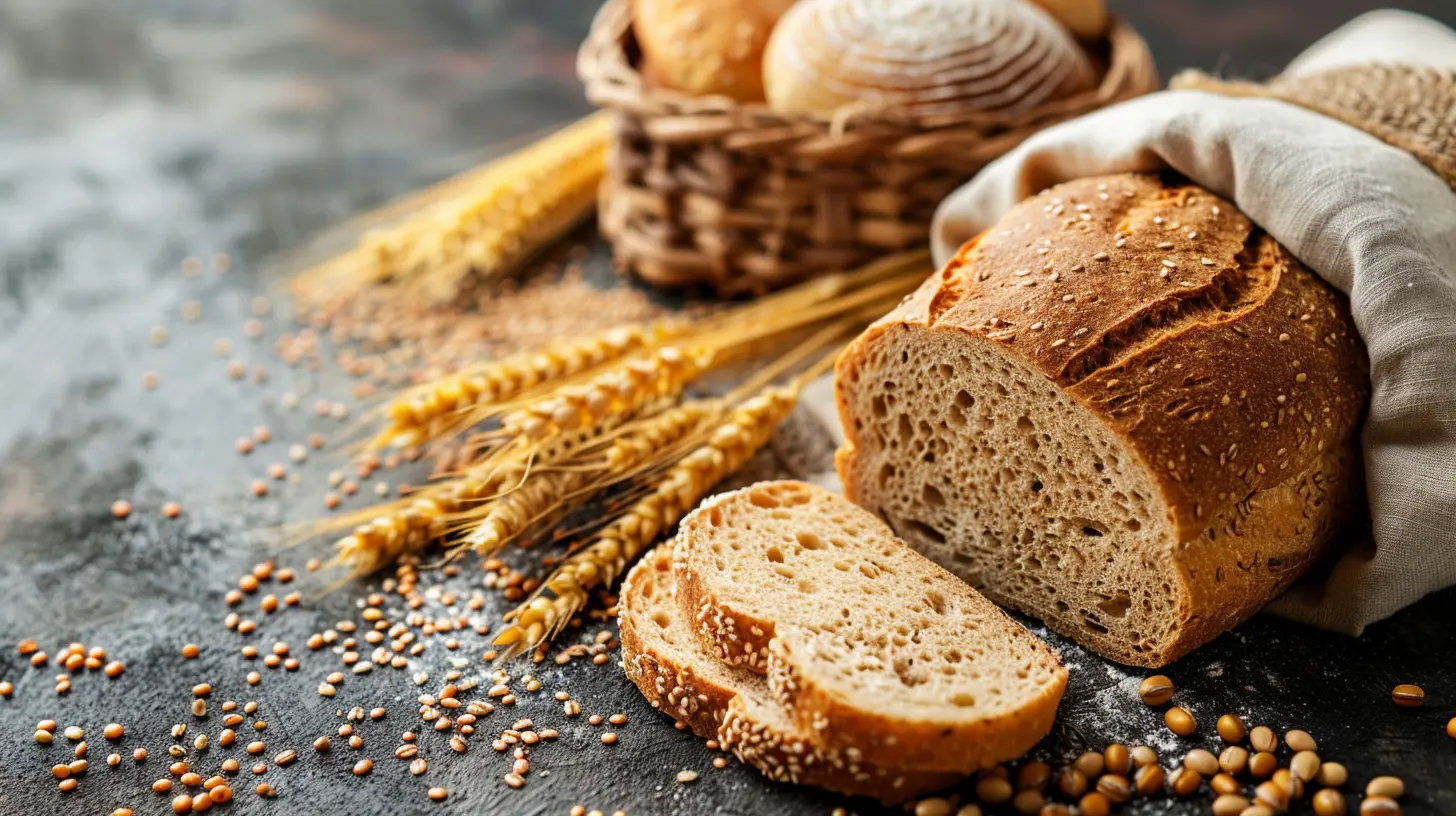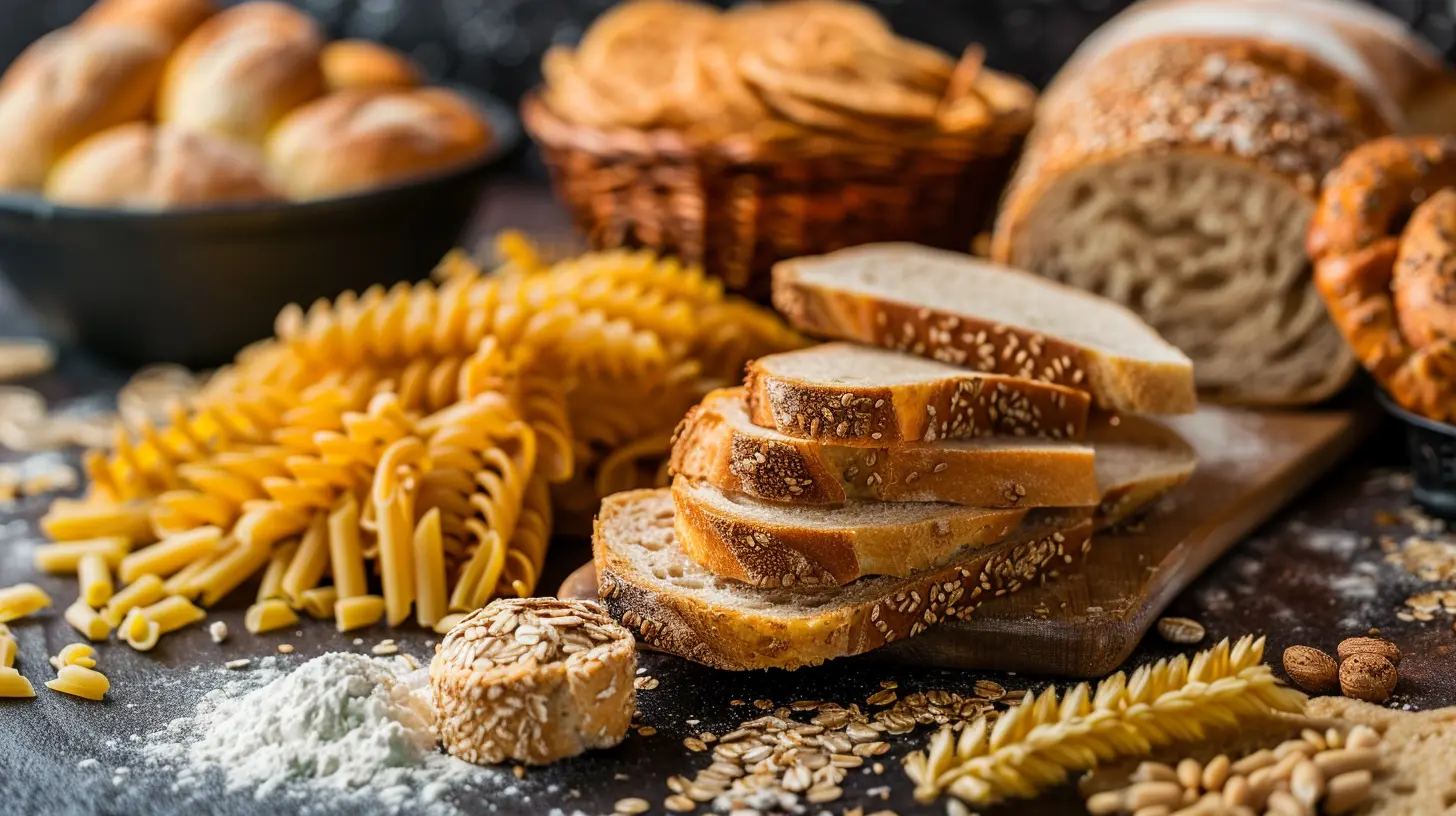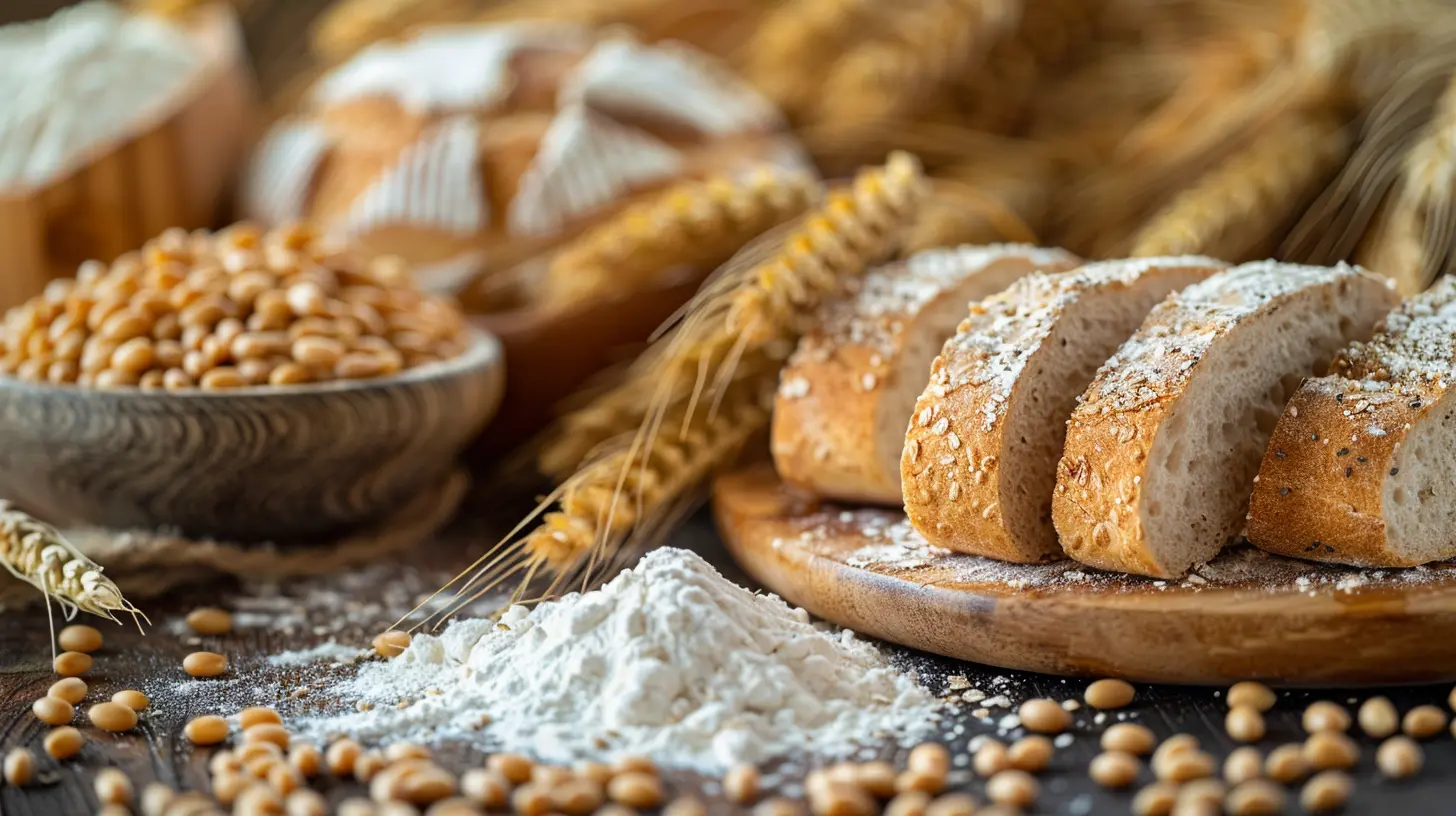Gluten-Free Diets: Fad or Legitimate Health Choice?
3 June 2025
Let’s talk gluten. You’ve probably heard someone at work say they’re “going gluten-free” or seen gluten-free labels screaming at you from cereal boxes, cookies, and even potato chips. It's like the buzzword of modern eating. But here's the big question: is going gluten-free just another trendy diet riding the wellness wave, or is it actually a smart, health-conscious decision?
Pull up a seat, grab a gluten-free snack if you like, and let’s dig into this.
What Exactly Is Gluten, Anyway?
Before we jump on or off the gluten-free wagon, let’s get clear on what gluten actually is.Gluten is a type of protein found in wheat, barley, rye, and their cousins. It’s the stuff that gives bread its chewiness and helps baked goods rise. Without gluten, your favorite pizza crust would fall flat — literally.
So, what’s the big deal?
For most people, gluten is harmless. Seriously, it goes in, it comes out, and life moves on. But for a slice of the population, gluten can stir up a storm inside the gut. That’s where things get interesting.
The Medical Side: When Gluten Is the Enemy
Let’s set the record straight. For certain people, going gluten-free is not optional — it’s mandatory. Here’s who we're talking about:1. Celiac Disease
This is the real deal. Celiac disease is an autoimmune disorder. When someone with celiac eats gluten, their body attacks the lining of their small intestine. That’s not a good thing. It messes with nutrient absorption, causes all sorts of digestive problems, and can even lead to long-term damage if untreated.About 1% of the population has celiac disease. For them, gluten-free is a lifeline, not a lifestyle choice.
2. Non-Celiac Gluten Sensitivity (NCGS)
Here’s where it gets a little fuzzy. These people don’t test positive for celiac disease, but they still feel crummy when they eat gluten. We're talking about bloating, fatigue, brain fog — not fun. The medical community is still unraveling this one, but there’s enough evidence to acknowledge that it’s real.3. Wheat Allergy
This is a true food allergy — not to gluten specifically, but to wheat proteins. Symptoms can be mild (like skin irritation) or severe (think anaphylaxis). In this case, removing wheat (and most often gluten by default) is necessary.So, for these groups, gluten-free isn’t a fad. It's essential.
The Rise of the Gluten-Free Movement
Now, here’s where the plot thickens.Walk into any grocery store today, and the gluten-free section is booming. From gluten-free brownies to gluten-free pasta, the market is expected to hit over $10 billion in the next few years. That didn’t happen just because of celiac disease.
So, why are so many people saying sayonara to gluten?
1. Celebrities and Social Media Influence
When celebrities like Gwyneth Paltrow or Novak Djokovic talk about ditching gluten and feeling amazing, people listen. Whether it's science-backed or not, these influential voices carry weight in public opinion.2. General Health Perception
There’s a widespread belief that gluten-free means healthy. Spoiler alert: it doesn’t always. But we’ll get to that in a minute.3. Diet Culture and Clean Eating Trends
The clean eating trend has morphed into something of a moral code. Foods are labeled “good” and “bad,” and gluten often ends up on the naughty list. That’s not always fair, but it’s part of the diet culture narrative.
Is There Any Real Benefit to Going Gluten-Free?
Now we’re getting to the meat and potatoes (both naturally gluten-free, by the way).Let’s say you don’t have celiac disease, NCGS, or a wheat allergy. Is there any reason to avoid gluten?
Potential Benefits:
- Reduced bloating: Some people report feeling less bloated or sluggish without gluten, possibly because they’re cutting out a lot of processed foods, not just gluten.- Improved skin: Anecdotally, some folks say ditching gluten clears up their acne or eczema.
- Mental clarity: The so-called “brain fog” is real for some people after eating gluten-laden meals.
But here’s the kicker — is it the absence of gluten doing the trick, or is it the cleaner diet overall? If you swap white bread and donuts for fruits, veggies, and lean proteins, of course you’ll feel better. Gluten might just be the scapegoat.
The Hidden Downsides of Gluten-Free Diets
Alright, let’s not romanticize this too much. Going gluten-free without a medical reason can backfire, and here’s why.1. Nutritional Gaps
Gluten-containing grains often pack a punch of fiber, iron, and B vitamins. Swap them out for gluten-free alternatives like white rice and cornmeal, and you might find yourself low on nutrients. Not ideal.2. Highly Processed Swaps
Just because it’s gluten-free doesn’t mean it’s healthy. A lot of gluten-free packaged foods are ultra-processed, high in sugar, and low in fiber. You might end up worse off than before.3. Higher Cost
Your wallet might feel the burn. Gluten-free products often cost 2–3 times more than their gluten-full counterparts. Is it worth it if you don’t need it? You decide.Debunking Common Myths
Let’s clear the air on a few things you might’ve heard.❌ Myth #1: Gluten-Free Means Healthier
Nope. A gluten-free cookie is still a cookie. And gluten-free junk food is still… junk food.❌ Myth #2: Gluten Causes Weight Gain
Gluten isn’t causing weight gain — overeating and inactive lifestyles are. Unless you have gluten sensitivity, gluten isn’t fattening.❌ Myth #3: Gluten-Free Equals Low-Carb
Wrong again. Plenty of gluten-free foods are high in carbs — think rice, gluten-free pasta, and certain flours like potato or tapioca.Who Should (and Shouldn’t) Go Gluten-Free?
Let’s make a simple cheat sheet.✅ You Should Go Gluten-Free If:
- You have celiac disease- You have been diagnosed with NCGS
- You have a wheat allergy
- Your doctor recommends it based on solid evidence
❌ You Probably Don’t Need To If:
- You're trying to lose weight (cut the junk instead)- You're following a trend without symptoms
- You're assuming gluten is universally bad
How to Go Gluten-Free the Right Way
Alright, if you do decide to try a gluten-free diet, here’s how to do it smartly.1. Focus on Whole Foods
Fruits, vegetables, lean protein, legumes, nuts, seeds — all naturally gluten-free and super healthy.2. Choose Gluten-Free Whole Grains
Go for quinoa, brown rice, millet, buckwheat, and certified gluten-free oats.3. Read Labels Carefully
You’d be surprised where gluten hides — soy sauce, soups, sauces, dressings, even candies!4. Don’t Skip Nutrients
Look for fortified gluten-free products or compensate with a balanced diet rich in iron, fiber, and B vitamins.The Bottom Line: Fad or Legit?
So, is a gluten-free diet a fad or a legitimate health choice?In honest terms — both, depending on the person.
For people with celiac disease or gluten sensitivity, it’s 100% a legitimate health choice, even life-saving. For others, it might be a well-meaning attempt at getting healthier but could easily morph into a nutrient-lacking, overpriced trend.
The key is knowing your body, not just jumping on a bandwagon.
If you feel better off gluten — awesome! Just make sure you’re doing it the right way. And if you don't notice any issues with gluten, there’s no need to eliminate it just because your favorite influencer told you so.
Sometimes, the best “diet” is simply eating whole, minimally processed food — gluten or not.
all images in this post were generated using AI tools
Category:
Gluten FreeAuthor:

Angelo McGillivray
Discussion
rate this article
3 comments
Chloe Romero
While gluten-free diets can benefit those with celiac disease or gluten sensitivity, the trend often overlooks nutritional balance, potentially leading to deficiencies and unaddressed underlying health issues.
June 19, 2025 at 4:14 AM

Angelo McGillivray
Thank you for your insight! It’s crucial to prioritize nutritional balance in any diet, including gluten-free ones, to ensure overall health and well-being.
Ryan Bass
Gluten-free diets can benefit those with celiac disease; consult a doctor first.
June 5, 2025 at 2:31 PM

Angelo McGillivray
Absolutely, consulting a doctor is essential for anyone considering a gluten-free diet, especially for those with celiac disease.
Berenice Whitley
Gluten-free diets can benefit those with celiac disease or gluten sensitivity, but they're not necessary for everyone else.
June 3, 2025 at 2:54 AM

Angelo McGillivray
I agree! Gluten-free diets are essential for those with specific conditions, but for most people, they may not provide significant health benefits.



